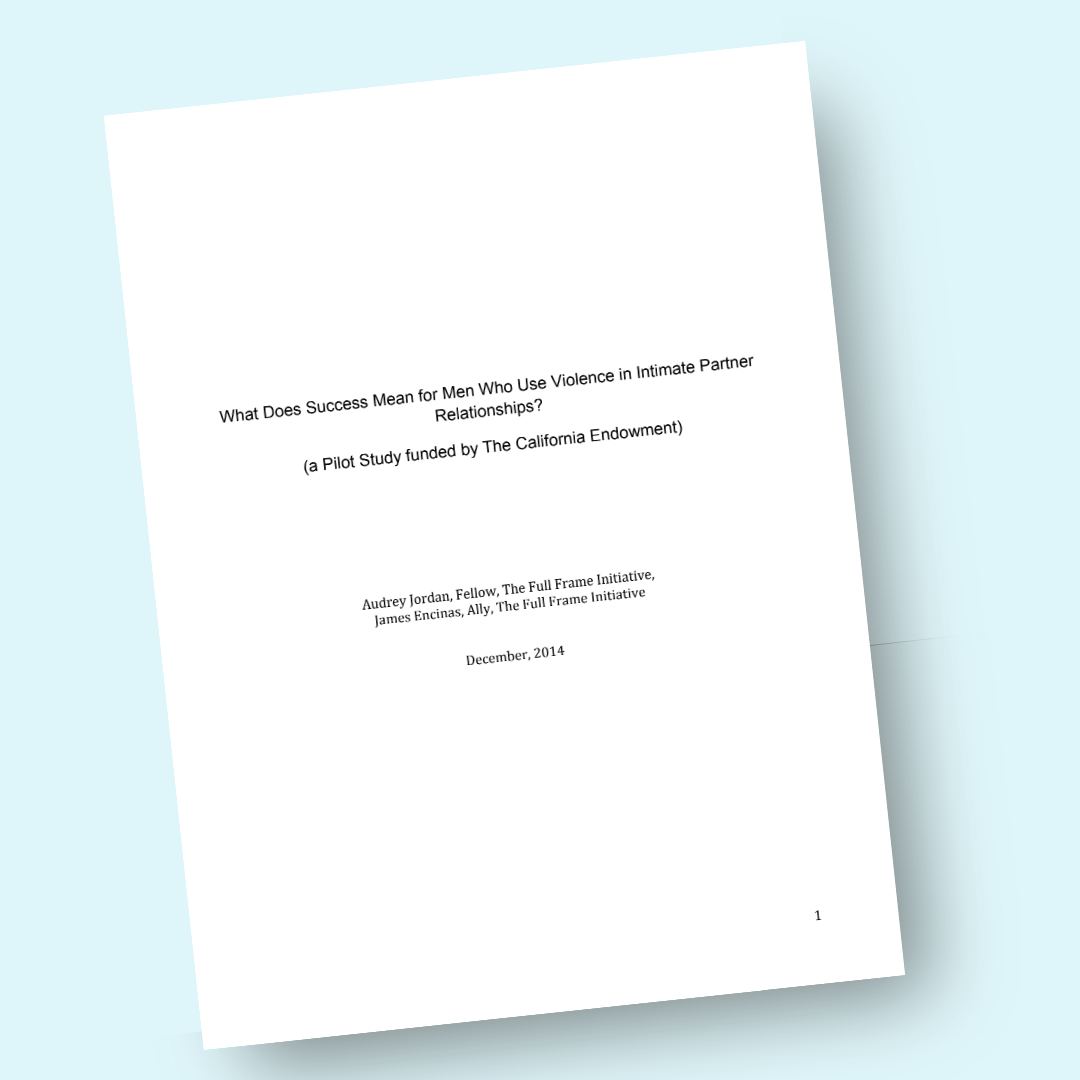
This document shares the findings of a pilot study to better understand men who use violence in intimate partner relationships.
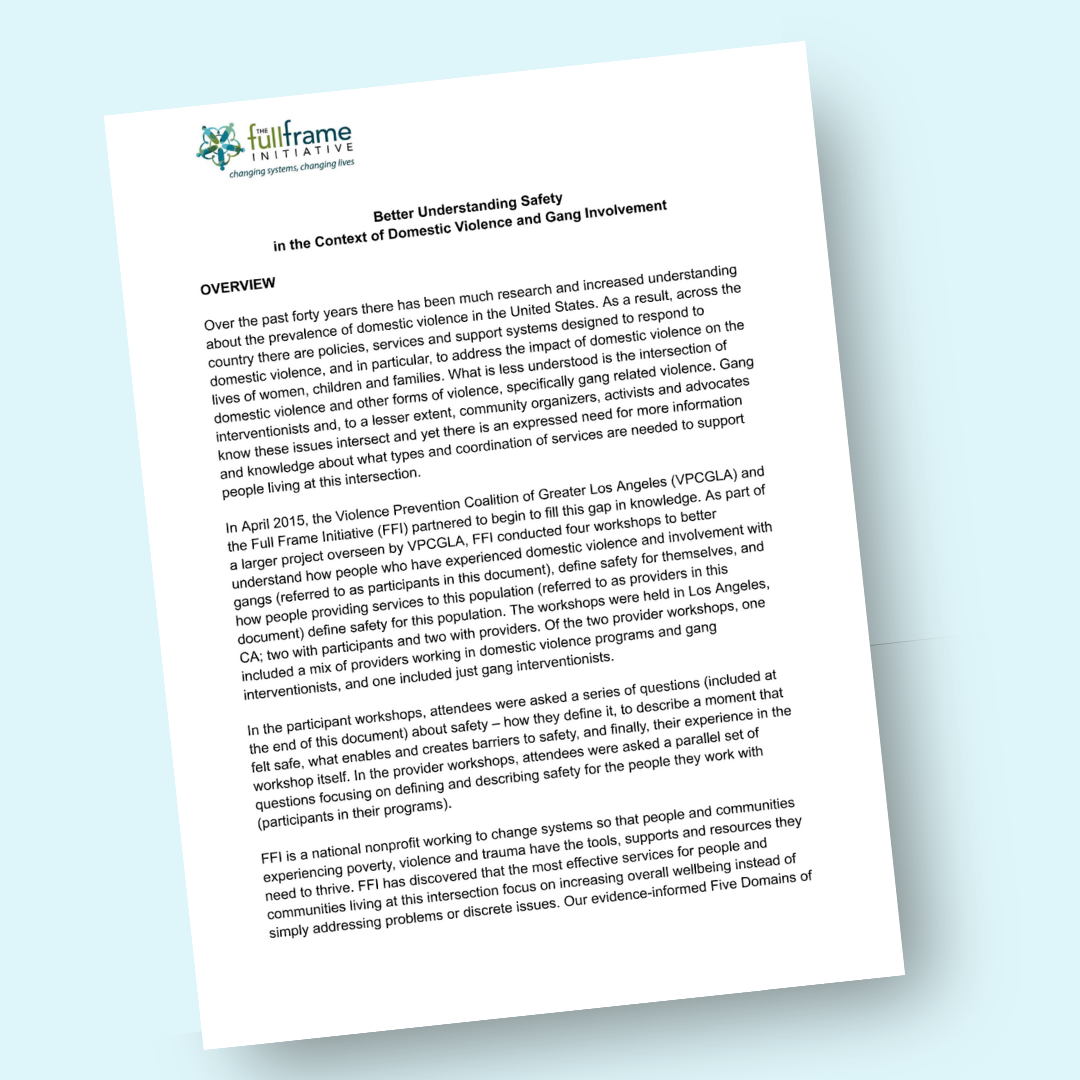
This document summarizes the results of workshops that helped understand the intersection of domestic violence and gang-related violence.
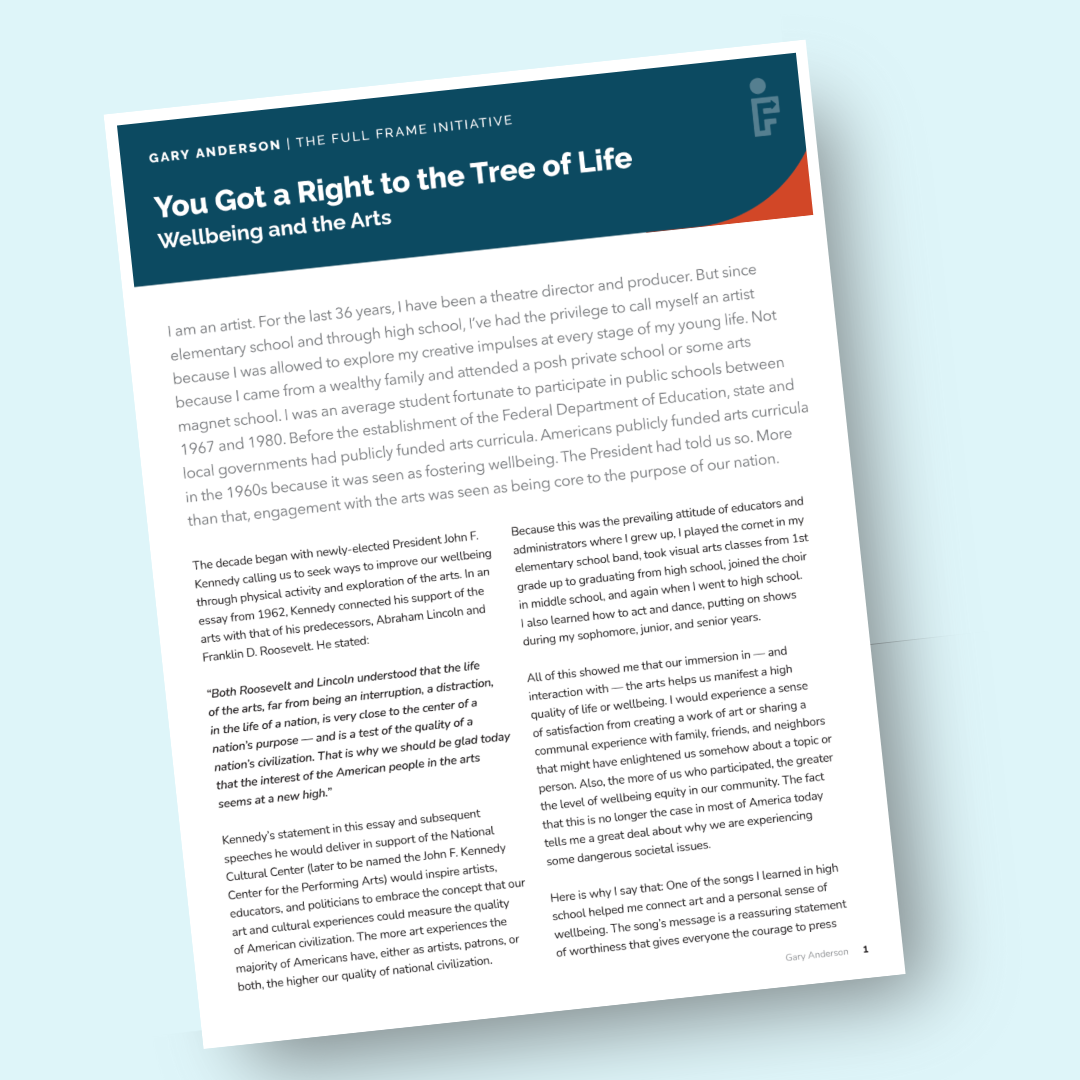
FFI Senior Fellow Gary Anderson, a theater director and producer with over 36 years of experience, makes a compelling case for centering the arts as a pathway to wellbeing and democracy.
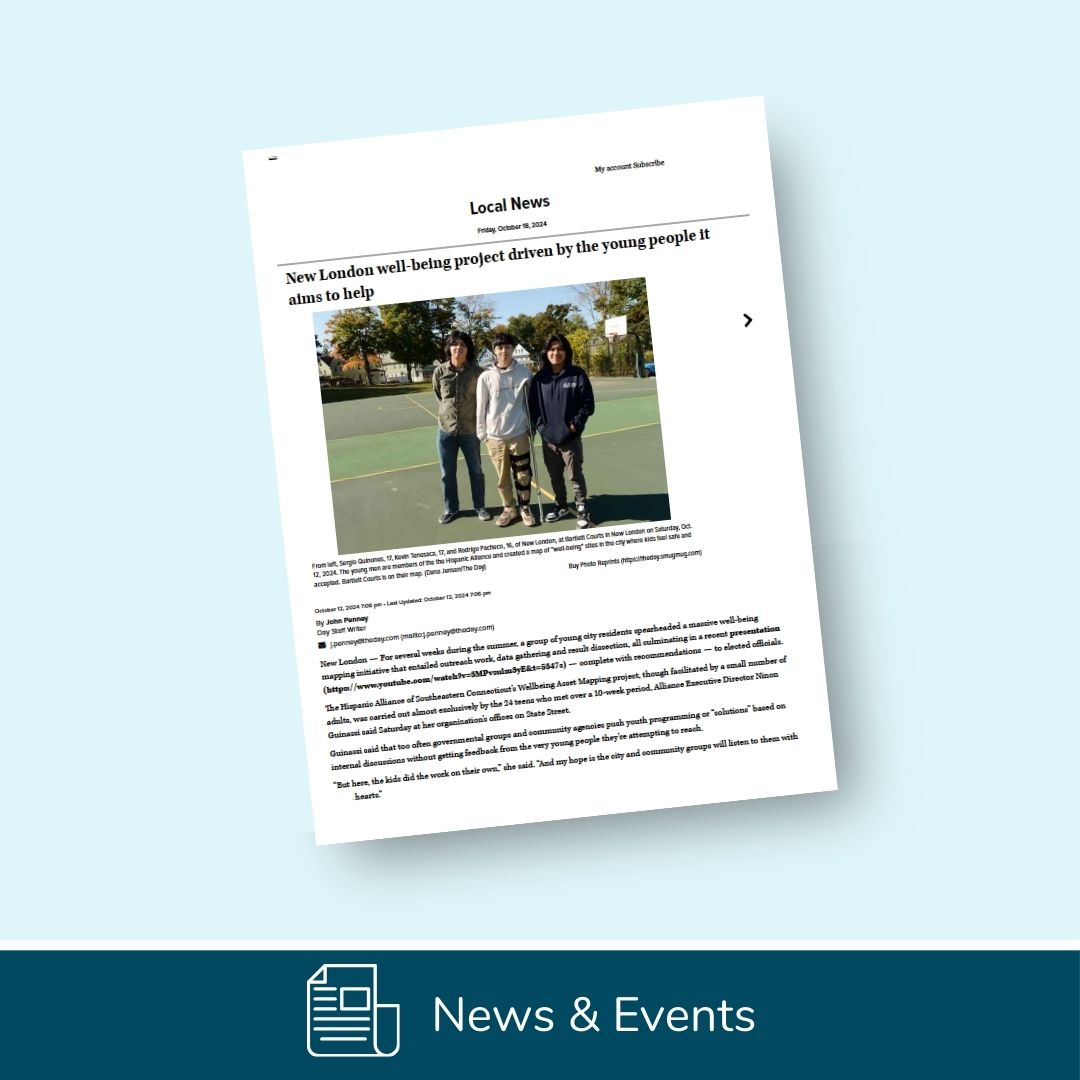
Learn how FFI partnered with the City of New London and the Hispanic Alliance of Southeastern Connecticut on a wellbeing asset mapping project.
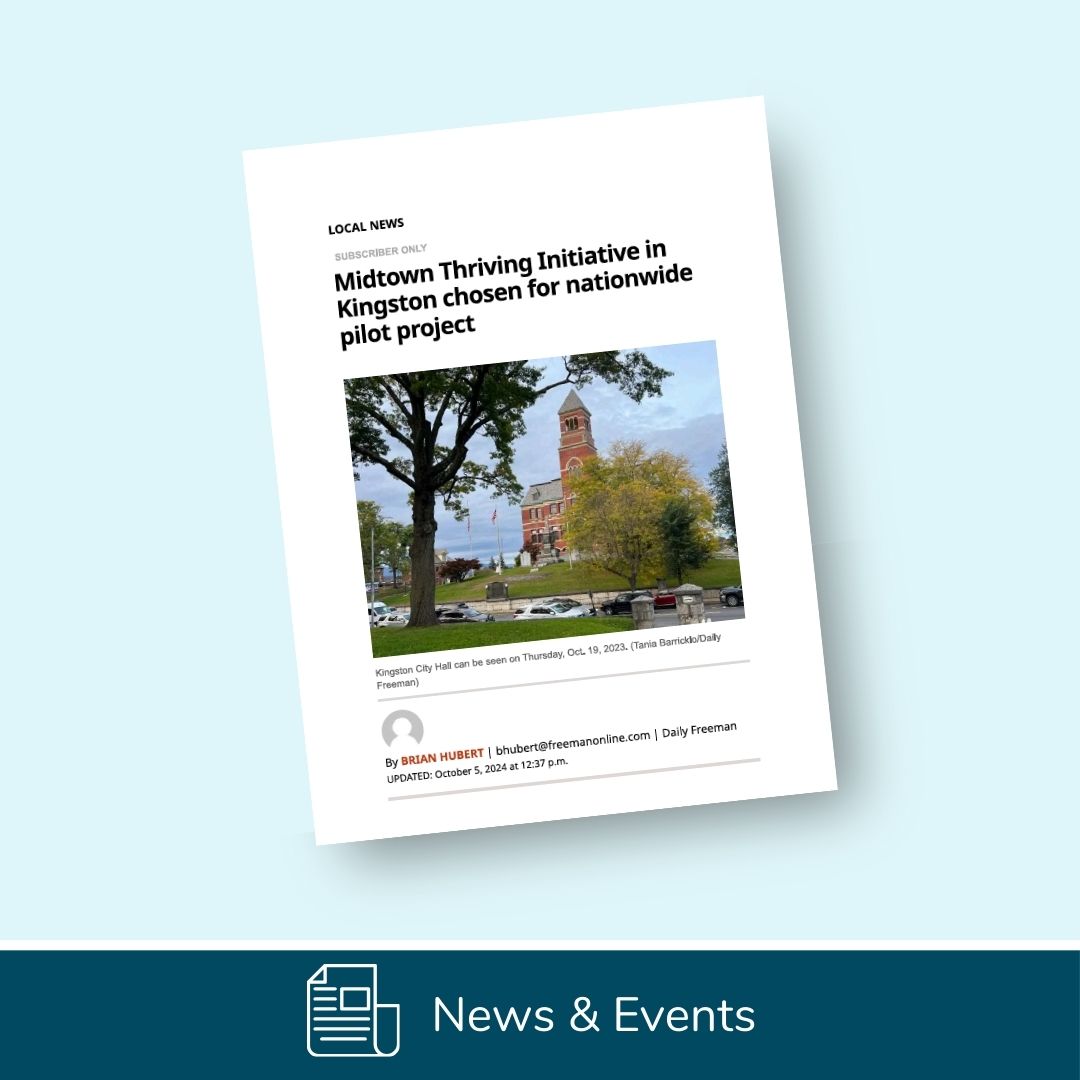
Kingston, NY's Midtown Thriving Initiative was selected by FFI as one of four nationwide pilot projects under its Community Engagement Initiative.
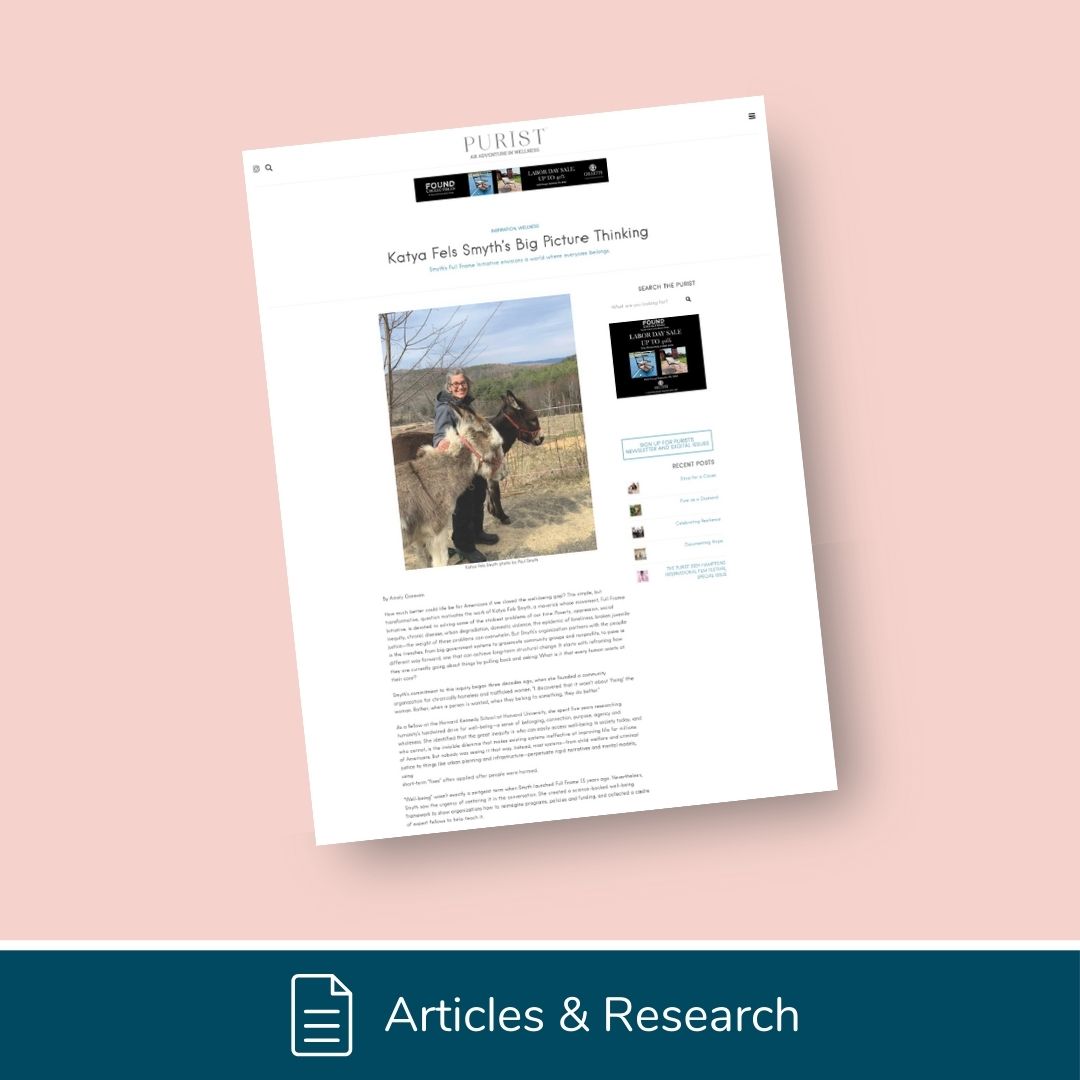
Learn more about our Founder & CEO, Katya Fels Smyth, her big picture thinking and the science-backed wellbeing framework that underlies our work on the Purist blog.
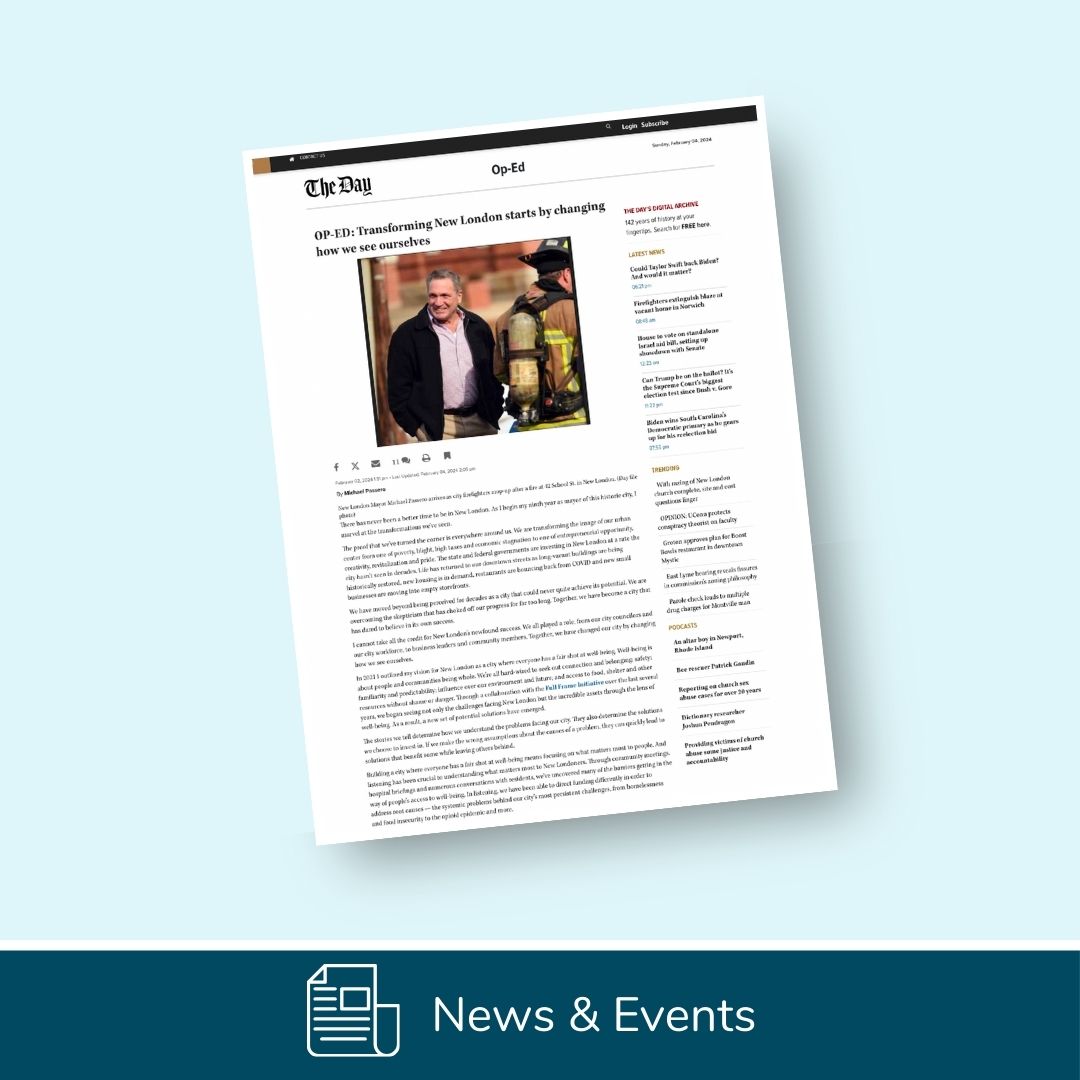
Mayor Michael Passero writes about the impact of the city of New London's partnership with FFI. Together, we're shifting how leaders and residents see their roles in building a city where everyone has a fair shot at wellbeing.
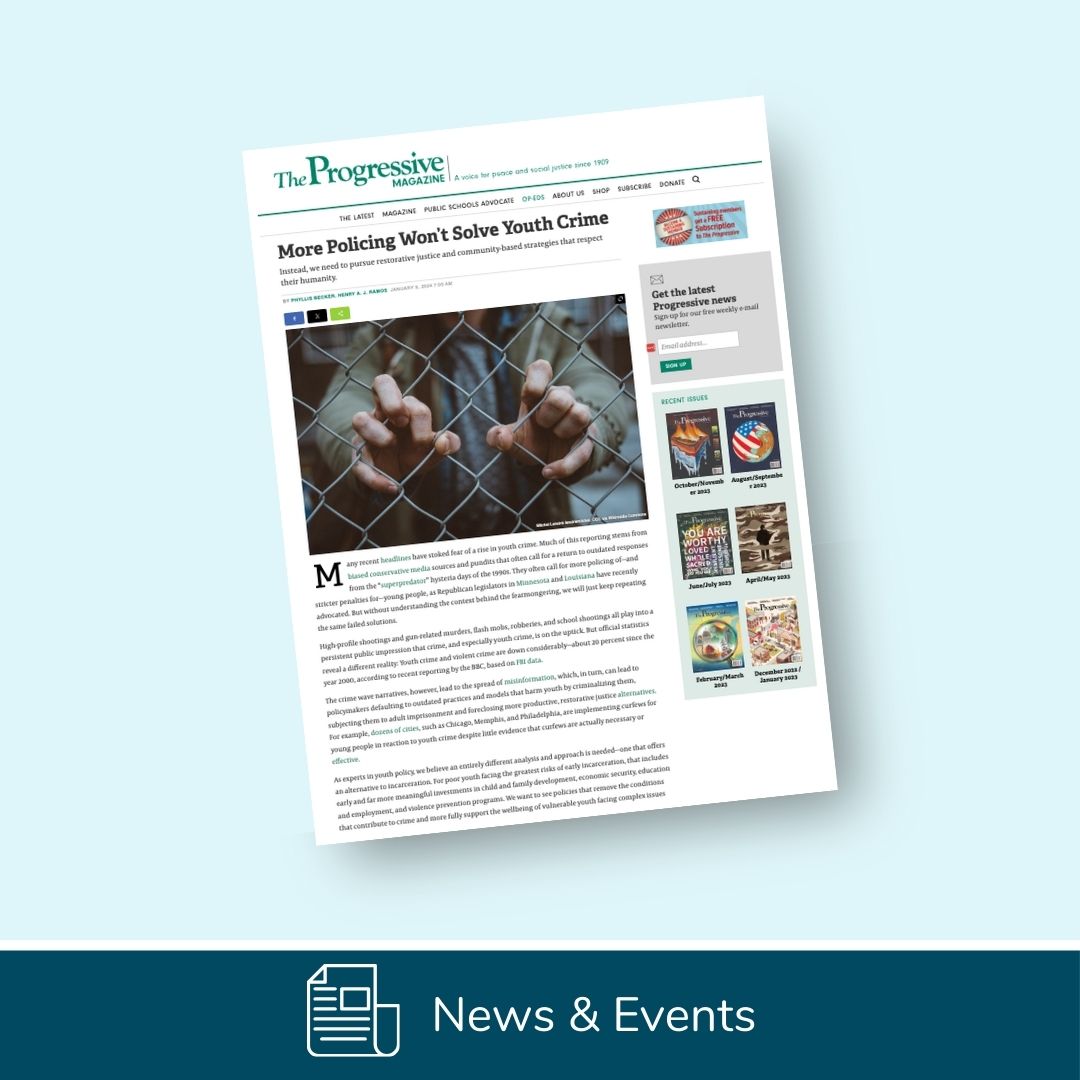
FFI Senior Fellow Phyllis Becker, and Henry A. J. Ramos of The New School Institute on Race, Power and Political Economy explore how centering youth, families and communities creates more sustainable responses to crime.
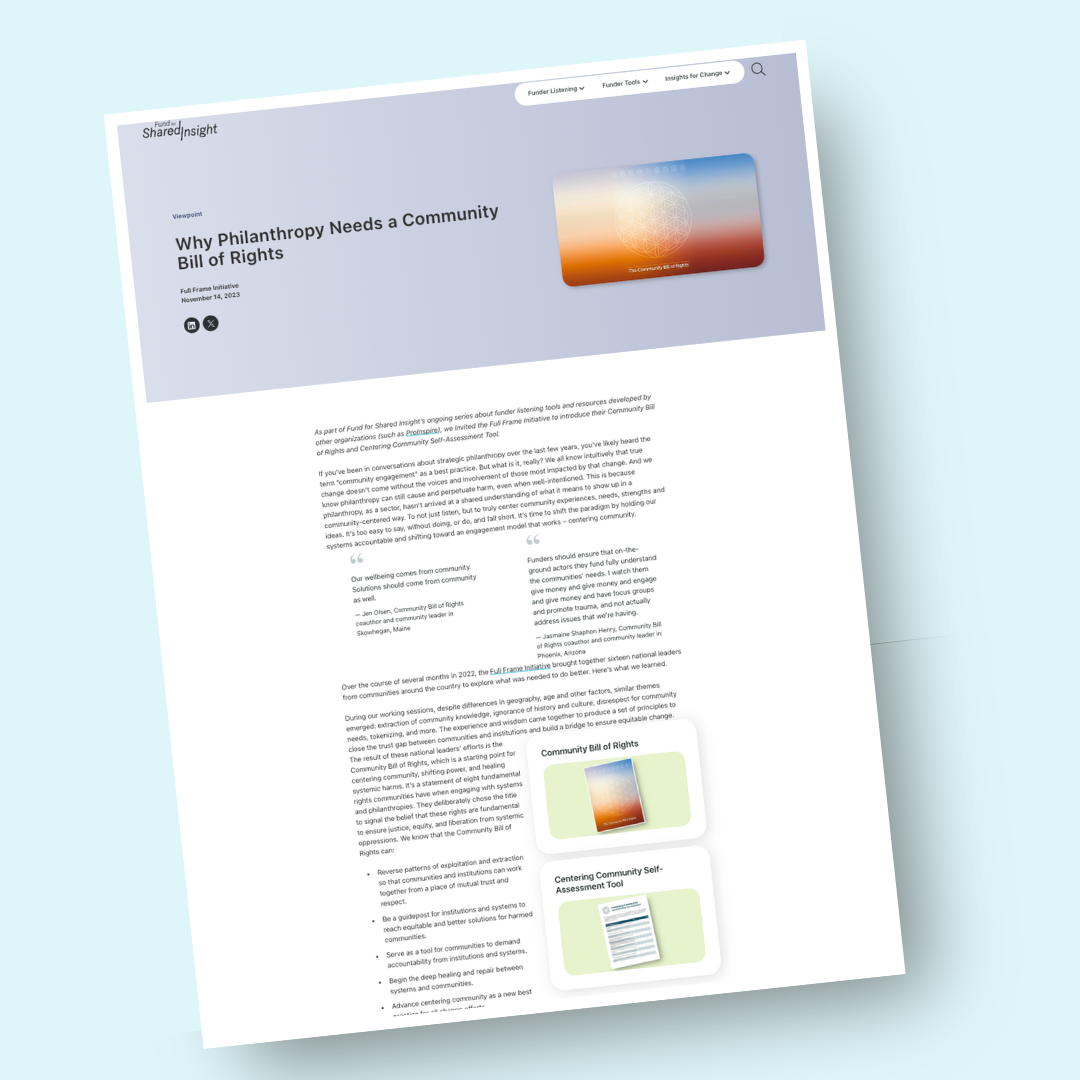
The Fund for Shared Insight invited the Full Frame Initiative to share the Community Bill of Rights and Centering Community Self-Assessment Tool as integral resources for philanthropic organizations.
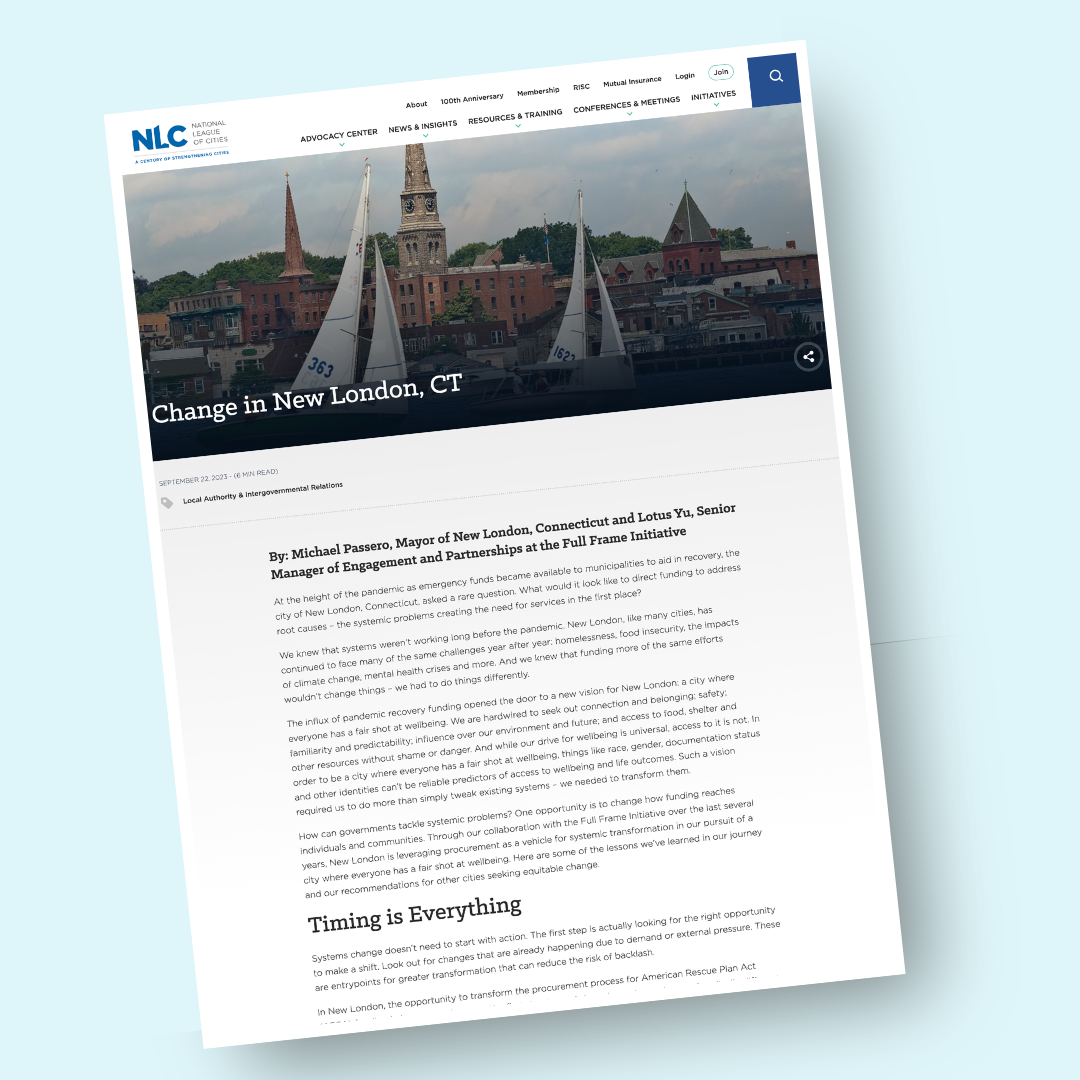
Michael Passero, Mayor of New London, Connecticut and Lotus Yu, Senior Manager of Engagement and Partnerships at the Full Frame Initiative share how the City of New London leveraged the government procurement process to distribute funds for transformative change that centers wellbeing and equity.
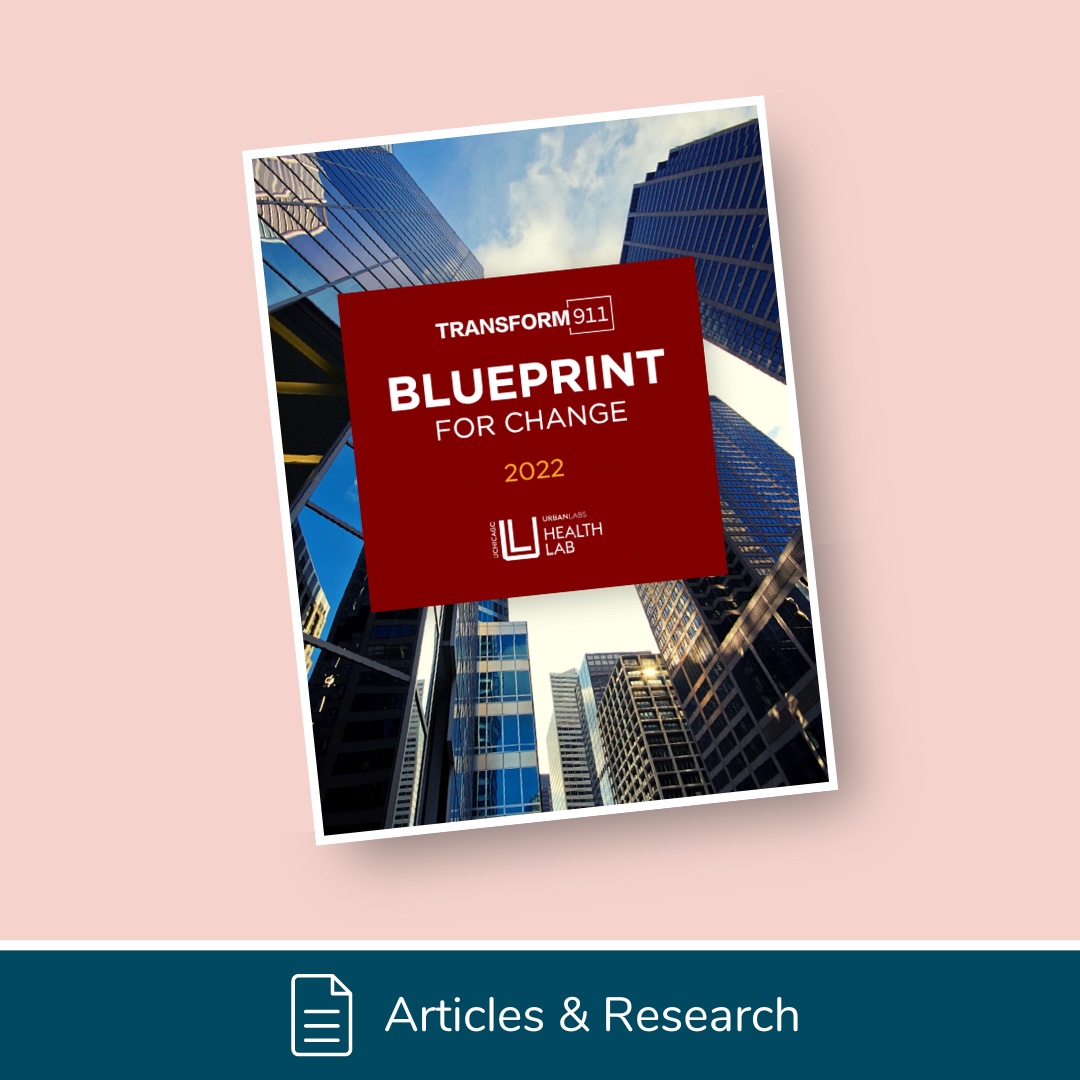
To increase access for wellbeing for both people served by the emergency response system and those who work within it, it’s critical that we reimagine 911. The Transform911 Blueprint for Change is the starting point for doing just that.
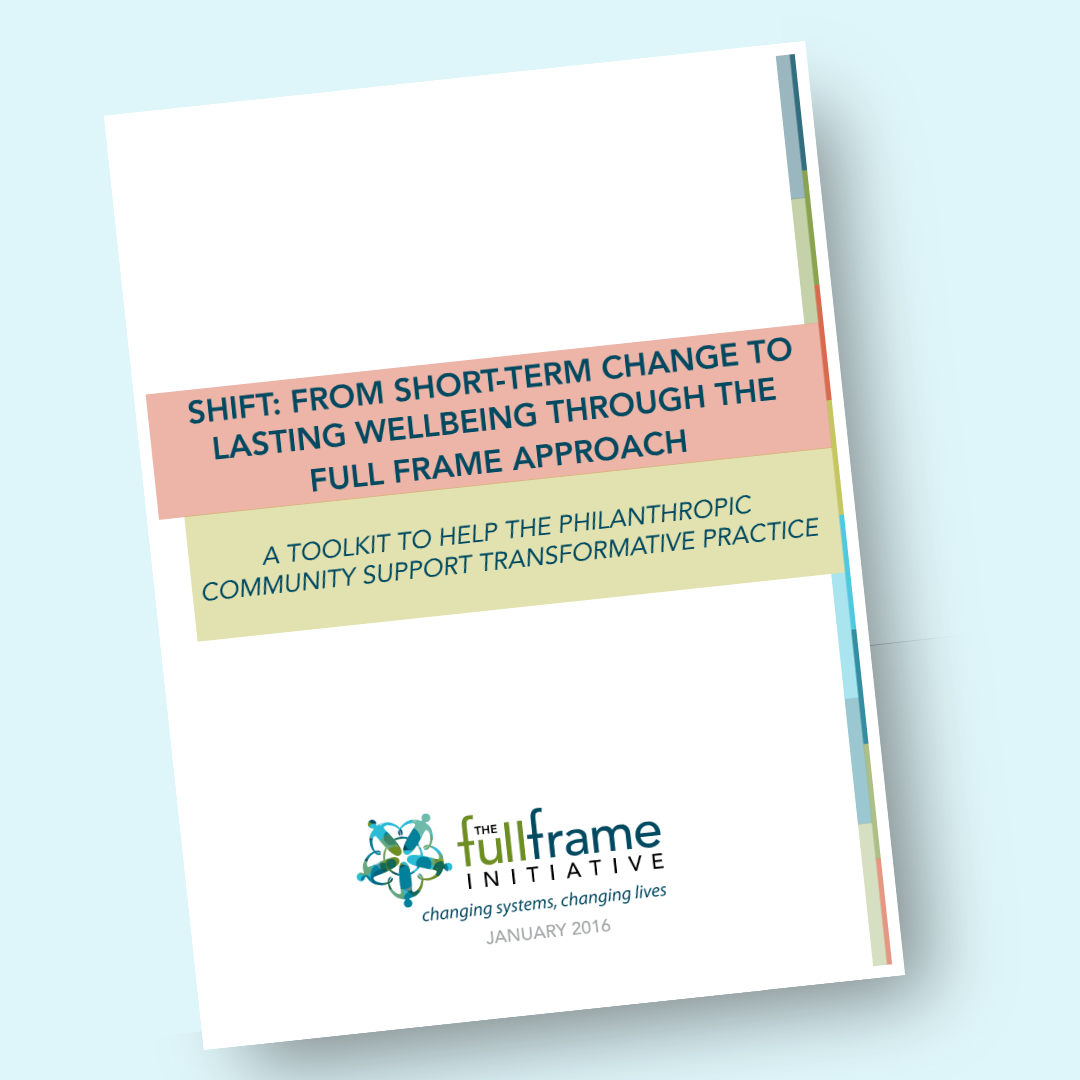
This toolkit provides guidance for the philanthropic community and other stakeholders interested in supporting long-term, sustainable change for people living at the intersection of poverty, violence, trauma and oppression.